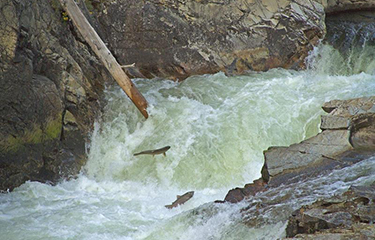The U.S. Department of Commerce has determined fishery disasters occurred in several fisheries in Alaska, California, Louisiana, and Oregon, opening the door for those fisheries to receive federal financial assistance.
Most notably, the department determined a disaster took place across all Oregon chinook salmon fisheries from 2018 to 2020.
“This determination is incredible news for commercial fishers who have been waiting for years to find out whether or not they can receive support from the federal government,” Oregon Governor Tina Kotek said. “This is a result of the work of Governor [Kate] Brown and our congressional delegation to recognize and advocate for Oregon’s commercial fisheries. I am also hopeful for a future determination for our recent fisheries disaster declaration request.”
The state is still waiting for a response on its request for the 2021 season, and Kotek requested an expedited determination of a federal fishery resource disaster for ocean commercial salmon fisheries for 2023 back in April.
The U.S. Commerce Department also declared a disaster took place in the Alaska Yukon River salmon fisheries. Although the fisheries were closed in 2021 and 2022 to allow the fish to recover, salmon levels remain historically low.
“Although all salmon fishing was closed on the Yukon River in 2021 and 2022 and heavily restricted/closed in 2020, the 2022 total number of chinook salmon returning to the Yukon River was estimated to be the lowest on record,” Alaska Governor Mike Dunleavy said in a letter seeking federal assistance last year. “The 2022 summer chum salmon run was less than the minimum escapement goal and was the fourth lowest on record. Similarly, the minimum escapement goal for fall chum salmon is unlikely to be met.”
Dunleavy said the loss of revenue from commercial fishing caused “severe economic harm in the region,” while the loss of subsistence farming has caused food insecurity and “prevented residents from sharing cultural and traditional practices.”
The federal government previously set disaster designations for the 2020 and 2021 Yukon River salmon seasons.
The department also approved a request from the Yurok Tribe in California for a disaster declaration for the Klamath River 2020 fall chinook salmon fishery. The tribe noted in its request that 2020 was the fifth consecutive year where it had received no or extremely low economy opportunity from the fishery.
“Tribal fishers, who rely solely on the income from the commercial season to provide for their families, have suffered a complete loss of annual income,” the tribe noted. “This loss of economic opportunity has resulted in substantial financial hardship for our people, which has exacerbated the existing poor economic climate of the community, a significant portion of which already live below the poverty level.”
The Muckleshoot Indian Tribe in Washington also received a disaster determination for the chinook, chum, coho, and pink salmon fishery along the Green River for 2017 and 2019, where the tribe suffered from “extremely low runs.” The tribe blamed higher ocean temperatures for the decrease in salmon.
“Due to these disasters, the Muckleshoot fishing community has lost approximately USD 1.31 million (EUR 1.24 million) in commercial fishing-based revenue,” the tribe claimed in its request.
The federal government also declared a disaster over the damage caused by Hurricane Ida to commercial fisheries in Louisiana when it hit in 2021. While Congress allocated USD 200 million (EUR 189 million) in assistance for affected fisheries in the aftermath of the storm, the money could not be spent until a disaster was officially determined to have taken place.
“Immediately after Hurricane Ida, we secured USD 200 million in federal funding for fisheries disaster assistance,” U.S. Rep. Garret Graves (R-Louisiana) said following the determination announcement. “Instead of those dollars going to help our fishers recover, these relief funds have been locked in a safe for over two years while DOC decided whether or not to officially declare the event a fisheries disaster. This disaster process is broken – plain and simple. We kept our promise to not stop fighting until we brought relief to our fishery community, but we will continue to actively pursue reforms to make sure this kind of delay never occurs again.”
Finally, the federal government declared a disaster for California’s red sea urchin fishery for 2018 and 2019. Ocean conditions have hurt kelp forest ecosystems off the coast of California, according to the request, harming the urchin fishery. The Dept. of Commerce previously declared disasters for the 2016 and 2017 fisheries.
The determinations make these fisheries eligible for NOAA’s disaster assistance funding, which will be allocated at a future date.
Photo courtesy of NOAA Fisheries







